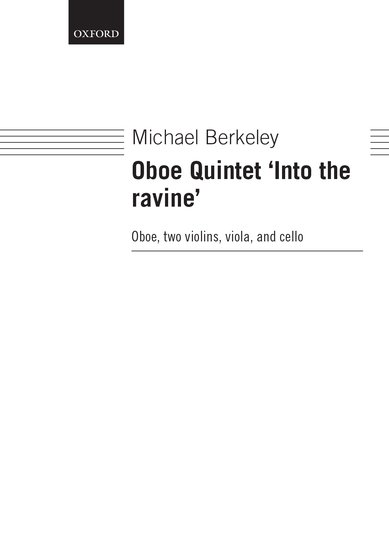Hearing is clearly the most important sense for a musician, particularly a composer, so the trauma of experiencing difficulties with this sense is hard to imagine. Beethoven famously suffered deteriorating hearing for much of his adult life; an affliction which brought him to despair at times. The cause of his deafness is still unknown, although much speculated upon, but the composer’s feelings about his situation are well-documented: Beethoven kept ‘Conversation Books’ full of discussions of his music and other issues which give a unique insight into his thoughts, and in a letter to his brothers (the Heiligenstadt Testament) he wrote a heart-wrenching description of his sense of despair and isolation caused by his inability to hear.
Despite his catastrophic loss of hearing Beethoven continued to compose — producing some of the greatest works in Western musical history. So how was this possible? How can a musician, particularly a composer, continue without full, or even hyper-sensitive, hearing?

We can get a modern day insight from Michael Berkeley — one of OUP’s composers who, over recent years, has been struggling with hearing troubles himself. Berkeley’s hearing damage was the result of a blocked ear, brought on by a fairly minor cold, which has caused irreparable nerve damage. These days there’s better help available to sufferers of hearing loss. However, sound distortion remains a problem, and hearing aids can only help so far, as Berkeley explains:
“Music was appallingly distorted, and in fact I couldn’t go to concerts as it was just so painful. I got a condition called hyperacusis, where loud sounds are unbearably painful. I got some very good digital hearing aids which made a great difference to speech, but it can only amplify what I’m already hearing so it didn’t help for music.”
Michael Berkeley explains how he continued to write music:
“If you are trained as a composer you can write in your head: you hear the sounds internally, and you’ve been trained how to get those sounds onto the page without a piano or any intermediary. It’s something you learn to do gradually through lots of hard work and by instinct. The problem is, when the music is played back I can’t comment very usefully: what I hear may not be what the conductor or the rest of the audience hear…it could be my hearing disability is distorting the real sound.
“The extraordinary thing is, I realised after a number of months that I was beginning to hear music more clearly. I remember there was a Haydn string quartet on, and I suddenly realised I was hearing it better: I was so overjoyed that I went to bed with an iPod and played it all night long! Apparently what can happen is that the brain begins to rewire itself. We hear with our brains — the ear is essentially a conduit — so if you have a template of musical knowledge then the brain begins to compensate for the distortions. My brain is learning to reprocess sound, and so it’s like discovering music anew: it’s absolutely wonderful!
“I’ve always thought that less is more. In Beethoven’s late music, particularly the late string quartets, the music is pared down to the absolute essentials, and I now find in my writing, partly because I can hear better when I play it back, that I’m beginning to concentrate much more on the essence of the sound and try to rid it of extraneous notes.
“I do feel that the music I’ve written in these last two years is actually as good as everything I’d written up until then: hopefully better.”
Michael Berkeley is the composer of a substantial number of highly acclaimed works, including three operas which have been produced in Europe, America and Australia. In addition to having been an associate composer to both the Scottish Chamber Orchestra and the BBC National Orchestra of Wales, Berkeley has had performances of his works given by many of the world’s finest orchestras, ensembles, soloists and opera companies, and many of his works have been released on CD. He is currently composing an anthem for the service of enthronement of Archbishop of Canterbury-elect, Justin Welby, in March 2013.
Anwen Greenaway is a Promotion Manager in Sheet Music at Oxford University Press. Read her previous blog posts.
Feature image credit: “Music score close-up photo” by Valentino Funghi. CCO via Unsplash.



That’s fascinating – just to be clear, are you saying that because your brain knows how a Haydn quartet, for example, should sound, that by listening to it your brain makes the necessary compensations which leads to hearing improvement in general?
Hello Callum,
From talking to Michael Berkeley I understand that the background of musical knowledge he has from his training means that the brain knows what it should be hearing and that helps it to learn to compensate. Listening to music which is familiar from before the hearing problem started also helps, as it all teaches the brain how it should compensate. Michael Berkeley is very keen people should know about the problem so that it might help avoid someone else suffering the same thing: if a common cold migrates to the ear it needs treating very quickly with steroids if the hearing is to be saved, and surprisingly few doctors are aware of that.